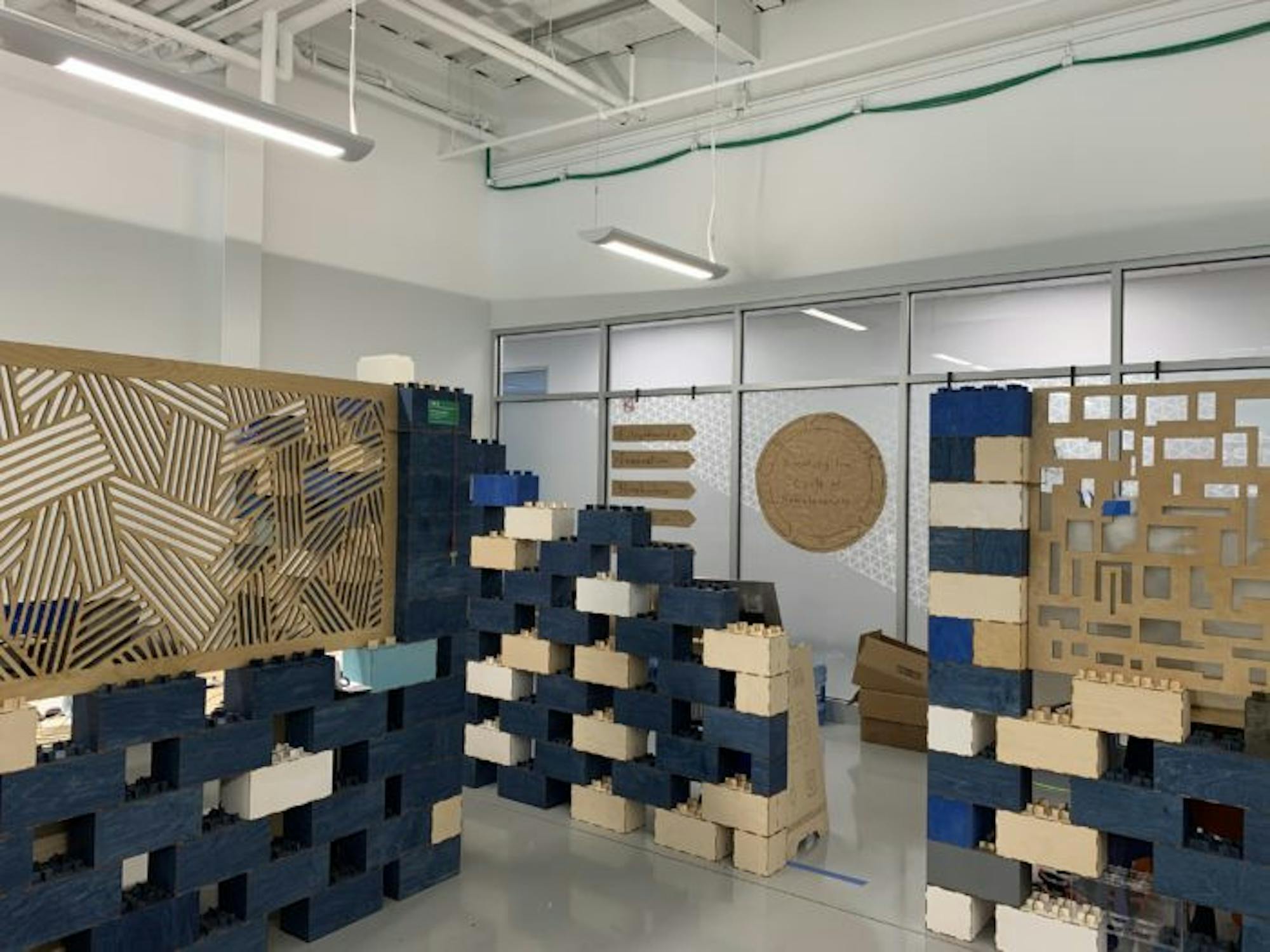The IDEA Center, located just outside of campus, may be a long walk away for many students — but making the trip might be worth it.
This semester, the IDEA Center has many opportunities for undergraduate and graduate entrepreneurs, including startup coaching and a pre-accelerator program. Students must apply to the pre-accelerator program, a six-week intensive curriculum where students focus their ideas and create an initial product, culminating in an opportunity to pitch a product to small-scale investors.
Among the programs offered, the most accessible is startup coaching. Patti Reinhardt, director of student engagement at the IDEA Center, said any student can simply go to the IDEA Center’s website to submit an idea and begin the coaching process.
“Students who have an idea can actually submit their ideas through our pipeline,” Reinhardt said. “They can get startup coaching, access to workshops and pitching opportunities, which include connections, advice and small amounts of funding. And we take no equity in student ideas at the IDEA Center.”
Sophomore Spencer Koehl is a senior startup coach with the IDEA Center this year. He began working with the IDEA Center last year as a venture coach. This year, Koehl said, the coaching program wants to focus on encouraging student entrepreneurs to truly take initiative themselves with coaches’ support.
“We’re going to give you the tools to show and convince investors that you have something worth building,” Koehl said.
During weekly coaching sessions, he said, students do anything from theorizing about a problem that needs solving to interviewing random people about their product in order to reach the ultimate goal of creating an idea ready to pitch to investors.
“You learn a lot about how to interview and how to create value out of talking to people,” Koehl said. “And the program is great with public speaking — you have to learn how to pitch, how to design pitch decks and how to answer questions on the fly. And how to sell people on your vision.”
As students figure out their vision and begin to craft their initial product, they often head to Matt Leevy, director of the IDEA Center Innovation Lab. There, students have access to industrial design services, 3D printing, laser cutting and more — all for free. The lab is only two years old, but its layout has already changed over 15 times thanks to giant Lego brick walls that lend to the dynamic environment.
“Specifically within this Innovation Lab concept, we have created a number of resources to facilitate entrepreneurship within the physical product space, so anybody with a physical product — big or small, by the way — and we are here to pour gasoline on that fire and get it going,” Leevy said.
All students need to do is email Leevy to get the process started. At the lab, they can tinker around, discover available tools and begin working.
There is one catch: once students begin selling their products, they then have to pay for any equipment they use at the lab, like any real business. But, Leevy said, that is the point. Ultimately, the IDEA Center wants to get undergrads to a place where they can start their own business. So far, around 20 student businesses have begun in collaboration with the lab, he said.
“The IDEA Center, really, is just a hub for driven, motivated people who want to make the world a better place,” Koehl said. “That’s why I get out of bed every morning and I’m like, ‘I love this job.’ It’s meeting all these different people and getting all this incredible experience.”













